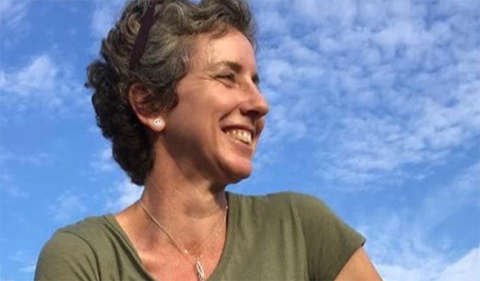A new course offered this fall—LING 2850 Sustaining the Mother Tongue: An introduction to Language Endangerment and Language Revitalization—provides an introduction to the causes of language endangerment and death and how languages can be revitalized and sustained.
An endangered language is one that is likely to become extinct in the near future. At present, of the approximately 7,000 languages spoken in the world, an estimated 80 percent may vanish by the end of the next century. In fact, the fate of a language can be nearly guaranteed over the span of a single generation if it is no longer being transmitted by parents to their children. Dozens of languages today have only one native speaker still living, and that person’s death will mean the extinction of that language. It will no longer be spoken, or known, by anyone.
When a community loses its language, it loses a great deal of its cultural identity and history at the same time. For non-speakers of the lost languages, the loss is still very real: the language takes with it it’s knowledge and vocabulary and its perceptions of the world and its experiences, thereby eliminating another lens on the human experience – a perspective from which we can all learn. The languages most threatened with extinction today are the indigenous languages spoken by the national and tribal minorities of the Americas, Africa, Asia and Oceania, and marginalized Europeans such as the Irish and the Basques.
The new course fulfills the new BRICKS Arches Connected World requirement as well as Tier II Cross-Cultural Perspectives.
The investigation of the life and death of languages is an application of social and behavioral sciences. The investigation of endangered languages will be conducted by teams that will be tasked with learning and understanding why a particular language becomes endangered and how it can be revitalized. This requires teams to collaborate on research into the sociocultural history of a language and its speakers, the systems of government and societal organization, and the factors contributing to contact with speakers of other languages: in-migration, out-migration, colonization, etc. Some teams may even be able to meet with speakers of endangered languages before presenting their findings to the class at the end of the semester. Students will be required to think critically to evaluate the degree of endangerment of a language and to evaluate the effectiveness of proposed revitalization strategies.
The course will be taught this coming fall semester by Dr. Michelle O’Malley, Associate Professor of Instruction in the Linguistics Department.
“This type of course is the perfect integration of theory and practice when you consider the field of linguistics and its rich content offerings,” O’Malley explains. “Students enrolled in LING 2850 will be able to refresh their understanding of theories of language development and language learning while expanding their knowledge of the causes and the fallout of language contact and change.
“In the end, they will be tasked with applying all of this knowledge in the service of language maintenance, and that’s a big step toward continued representation, expanded cultural contact and understanding. It’s hard to find any negatives here – I’m excited to take this journey with them!”
For more information, please contact O’Malley haugh@ohio.edu.




















Comments